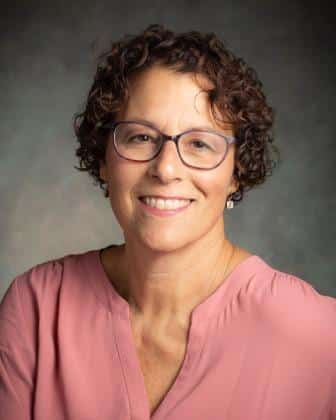We are all Esther

The Book of Esther is a bit puzzling, not because of its exotic setting, but rather because it is a book in the Bible that never mentions God at all. You do not have to be theological to see an irony here.
However, the interpretive genius of the Rabbis finds God’s presence in hidden places all over the Megillah and within the story. Most particularly they play with the name Esther and relate her name to a line back in Deuteronomy ( 32:20) which is God’s first person statement:
Astira Panai Mehem, I will hide my face from them and see what their end will be, For they are a generation of reversals Tachpuhot.
See! God is hiding behind Esther, who hides her identity until it is a time of reversals for her people. This is why we sing in the Purim song Mi SheNichnas Adar….Venahapoch Hu God will reverse and turn over what has happened.
As someone who now dwells in the world of cancer, I think that all women who are undergoing or have undergone treatment for cancer are like our brave grandmother Esther. Whether we are walking around with caps on our heads… or not, if we look thinner than usual…or not, whether we feel like ourselves….or not, we all live on some spectrum of hiddenness with respect to our cancers. Is it there for all to notice or is it not? How might we feel about a public display of what is so personal a condition? How might we feel about not receiving the comfort and support we might want because no one can see what we are holding?
When Mordechai comes to convince Esther (4:12-14) to stand up for her people and appear before the king he tells her: Don’t imagine in your soul that you will be able to escape in the king’s palace any more than the rest of the Jews. For if you persist in keeping silent at a time like this, relief and deliverance will come to the Jews from another place ( a second place where God’s presence is hiding but there) while you and your father’s house will perish. And who knows whether it was just for such a time that you attained the royal position!”
I believe that there are moments when we can choose to share our story, even surprise people by telling them that we are living with cancer. It can teach people in a simple way to be sensitive and aware of what it entails. It can let people know that they are not alone in having a mother, sister, wife or friend who is ailing and that there is support available for them. If we are not at a time when our condition can be hidden, we can help teach people how they might help, and what it looks like to be a person living through a time of personal struggle. That is a human condition that unites us all at one point of life or another.
The Purim story contains not just this story of hiddenness but also a beautiful message of community closeness and support. This is why we send gifts of food to one another on Purim and gifts for the poor. It is to sensitize us that to hide who we are with the added burden of loneliness is the worst kind of condition. This is precisely the spirit behind the loving care that is provided for all women through Sharsheret; reaching out during that early time of diagnosis, support during treatment, embracing the needs of an extended family, keeping people informed about new progress in the treatment of disease and celebrating every single moment are all examples of a Purim way of being. When we are unified in caring for each other we are able to fulfill this teaching from Esther too: For all the Jews, healthy and ill, young and old…. there was light and joy.
So may Purim be a time when all of your hidden beauty and goodness shine forth. And that you can celebrate every twist and turn of life with a bit of humor and joy.
